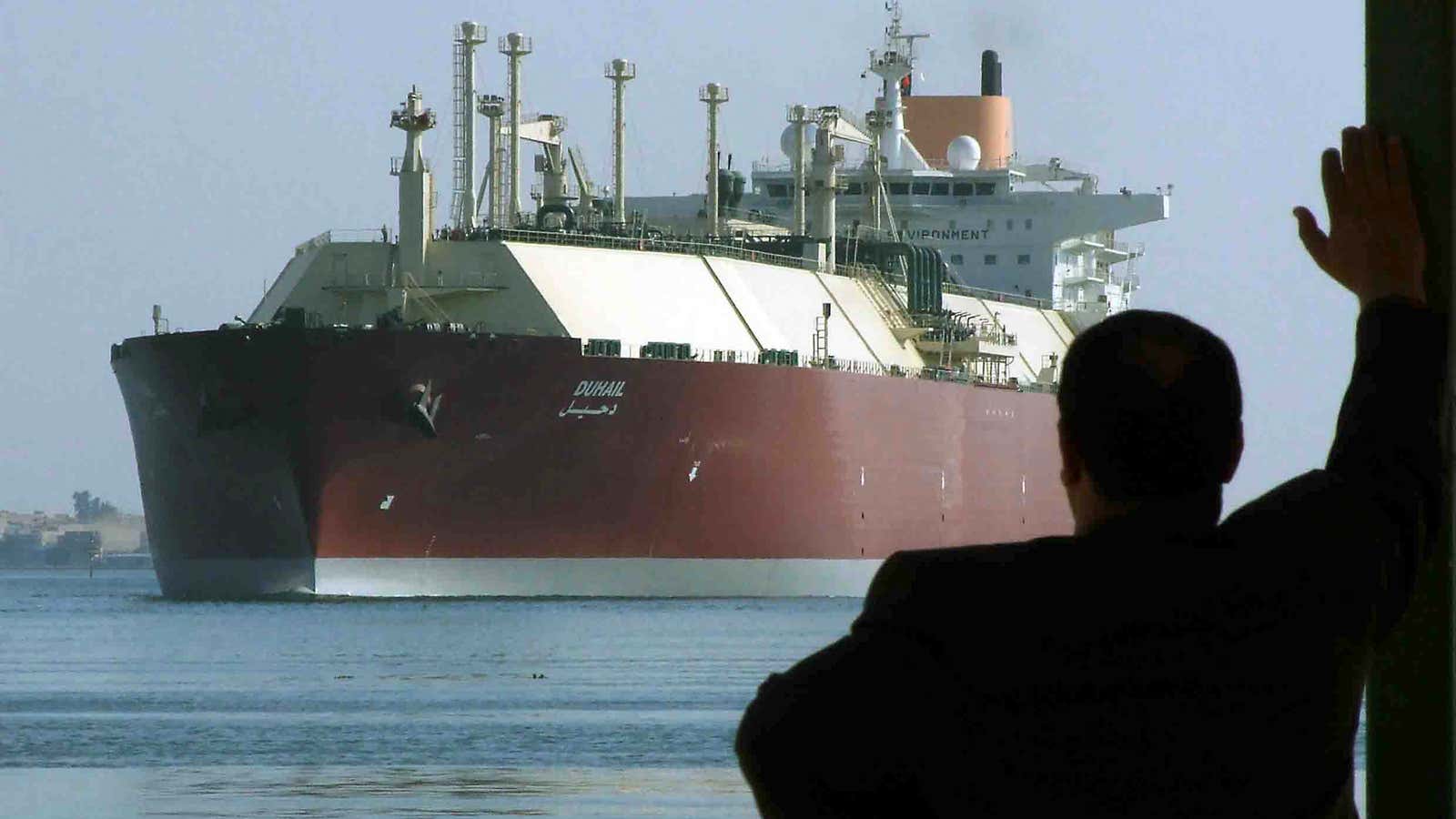Egypt will soon begin to ration electricity used for street lights, sporting venues, and government buildings, and set the air conditioning in shopping malls to a higher temperature, Prime Minister Moustafa Madbouly said on Aug. 10. The goal, he said, is to leave more gas available for export—to countries suffering their own gas shortages.
Russia’s decision to tighten the taps on its natural gas exports has led to a major global deficit. In turn, electricity prices in Europe are reaching record highs, the UK is bracing for blackouts this winter, and gas-importing countries in Asia are instituting electricity rationing. For countries that produce a lot of their own gas, the question becomes: Keep it to make electricity at home, or sell it for a big profit abroad? Egypt, for one, is leaning to the latter.
Egypt needs cash more than gas
Egypt is a relatively minor player in the gas market, able to ship no more than 3.2% of global demand for liquified natural gas (LNG) at peak production. But a series of major offshore discoveries in the last decade have raised its stature on the trade map and cured the blackouts that plagued Cairo during its years of turmoil and revolution in the early 2010s. The recent global gas shortage has provided a windfall. In the first four months of 2022, Egypt earned $3.9 billion from gas exports, as much as in all of 2021. In June, the country signed a deal with Israel and the European Union to boost gas exports in exchange for €100 million ($103 million) in food aid.
The Ukraine war has hobbled Egypt in one way, but enriched it in another. As the world’s top wheat importer, Egypt has seen food prices skyrocket because of trade disruptions stemming from the war. So its push to sell gas to desperate buyers overseas isn’t just opportunism. The country is sorely in need of cash for imports of food and other goods, and for a range of expensive infrastructure projects the government is pursuing, including the construction of a new administrative capital. Egypt is faced with nearly $400 billion in debt, tumbling reserves of foreign currency, and soaring inflation.
“We’re looking at how we can better utilize the natural resources available to us in order for them to bring in more foreign exchange,” Madbouly said in a press conference.
Egypt has LNG export capacity to spare
During the summer, when temperatures soar into the high 90s, half of Egypt’s electricity is used for air conditioning, and gas exports, which reached record levels last winter, usually slump. The Idku LNG export terminal, the country’s largest, used only 11% of its capacity in June and was entirely idle in July, according to the market intelligence firm Kpler. Damietta, Egypt’s other LNG export terminal, is using only about two-thirds of its capacity. So there’s export capacity to spare.
The government’s plan to curb electricity use will free up about 570 million cubic feet per day of gas, according to an analysis by intelligence firm Rystad Energy. That’s about one-third of Egypt’s export capacity, meaning the electricity-saving measures will provide a significant boost to what the country is able to ship. But it’s only about 1.2% of global demand, so Egypt is unlikely to noticeably tilt the global scales. Still, any extra output into the international gas market will push prices down for everyone.
It’s not yet clear where exactly Egypt’s extra gas exports will go. Historically, about two-thirds of Egyptian gas exports have gone to India and Asian countries, but these days gas in Europe is fetching a far higher price than anywhere else.
Additionally, Egypt is also switching some power plants to run on fuel oil instead of gas, said Justin Dargin, who studies North African energy markets at the Carnegie Endowment for International Peace. Fuel oil produces much more air pollution and greenhouse gas emissions than natural gas, which Dargin said could pose a PR problem as Egypt prepares to host the COP27 climate summit.
“This is a particularly fraught time for Egypt as it attempts to adhere to IMF-prescribed macroeconomic reforms while keeping a lid on potential socio-political discord resulting from its deepening economic problems,” Dargin said. “Buttressing its foreign currency reserves is not just an economic issue, but a national security issue.”
